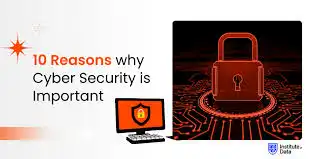Why Internet Security is Essential!
Understanding the Essential Types of Internet Security and Why They’re Crucial for Your Online Safety
In today’s digital age, internet security is not just an optional safeguard but a fundamental necessity. With the rise of cyber threats and increasingly sophisticated attacks, securing your online presence has become more critical than ever. From personal data to financial transactions, the need to protect your digital life is paramount. This article delves into various types of internet security and explains why you should invest in them.
Understanding Internet Security
Internet security refers to the measures and technologies used to protect your online activities, personal data, and computer systems from cyber threats. These threats can range from malware and phishing attacks to identity theft and hacking attempts. Internet security aims to ensure that your data remains confidential, your systems are protected, and your online activities are secure from prying eyes.
Types of Internet Security
1. Antivirus Software
Antivirus software is one of the most common forms of internet security. Its primary function is to detect, prevent, and remove malicious software, such as viruses, worms, and trojans, from your computer. Modern antivirus programs offer real-time protection, which means they continuously monitor your system for any suspicious activity.
Why Install It?
- Protection Against Malware: Antivirus software safeguards your computer from harmful programs that can damage your system or steal your data.
- Regular Updates: Most antivirus programs provide regular updates to protect against new threats.
- Real-Time Scanning: They offer real-time scanning, which helps prevent infections before they can cause harm.
2. Firewalls
A firewall acts as a barrier between your computer and the internet. It monitors incoming and outgoing traffic and blocks any unauthorised access. Firewalls can be hardware-based, software-based, or a combination of both.
Why Install It?
- Prevents Unauthorized Access: Firewalls help block unauthorised users from accessing your network and computer.
- Customizable Rules: You can set rules to control what type of traffic is allowed or blocked.
- Protection Against Attacks: Firewalls can defend against various attacks, including distributed denial-of-service (DDoS) attacks.
3. Virtual Private Networks (VPNs)
A VPN encrypts your internet connection, making it secure and private. It routes your internet traffic through a server located in a different geographical location, masking your IP address and online activities.
Why Install It?
- Enhanced Privacy: VPNs protect your browsing activities from being tracked by third parties, including your internet service provider (ISP).
- Secure Public Wi-Fi: They provide a secure connection when using public Wi-Fi, reducing the risk of data theft.
- Access Restricted Content: VPNs allow you to access content and services that may be restricted in your region.
4. Anti-Malware Software
Anti-malware software is designed to detect and remove various types of malware, including spyware, adware, and ransomware. Unlike traditional antivirus programs, anti-malware tools focus on identifying and eliminating malicious software that may not fall under the category of viruses.
Why Install It?
- Specialized Protection: It offers specialized protection against non-virus malware that traditional antivirus might miss.
- Comprehensive Scanning: Anti-malware tools often include comprehensive scanning options to detect hidden threats.
- Regular Updates: They receive frequent updates to address new and emerging threats.
5. Password Managers
Password managers store and manage your passwords in a secure, encrypted format. They can generate strong, unique passwords for each of your accounts, reducing the risk of password-related breaches.
Why Install It?
- Strong Passwords: They generate and store strong passwords, reducing the likelihood of your accounts being hacked.
- Convenient Access: Password managers make it easier to access your accounts without having to remember multiple passwords.
- Secure Storage: They encrypt your passwords, ensuring that they are protected from unauthorised access.
6. Encryption Tools
Encryption tools protect your data by converting it into an unreadable format that can only be deciphered with the correct decryption key. These tools can be used for securing files, emails, and communications.
Why Install It?
- Data Security: Encryption ensures that your data remains confidential and secure, even if it is intercepted.
- Protection for Sensitive Information: It is particularly important for protecting sensitive information, such as financial details and personal communications.
- Compliance: Encryption can help meet regulatory and compliance requirements for data protection.
Why You Should Install Internet Security
1. Protection from Cyber Threats
The primary reason for installing internet security is to protect yourself from various cyber threats. With the increasing frequency and sophistication of cyber-attacks, having robust security measures in place is crucial. Internet security helps safeguard your data from malware, phishing scams, identity theft, and other cyber threats that could compromise your personal and financial information.
2. Preventing Data Loss
Cyber-attacks can lead to significant data loss, whether through ransomware that locks you out of your files or malware that corrupts your data. Internet security solutions help prevent such scenarios by detecting and removing threats before they can cause damage. This ensures that your important files, documents, and personal information remain safe.
3. Ensuring Online Privacy
Maintaining your privacy online is increasingly challenging as data tracking and surveillance become more prevalent. Internet security tools, such as VPNs and encryption software, help protect your online activities from being monitored by third parties. This is particularly important if you frequently use public Wi-Fi networks, where your data is more vulnerable to interception.
4. Protecting Financial Transactions
With the rise of online banking and e-commerce, securing your financial transactions has become more important than ever. Internet security measures help protect your financial information from being stolen during online transactions. This reduces the risk of financial fraud and ensures that your banking and shopping activities remain secure.
5. Enhancing Overall Security
Implementing a comprehensive internet security strategy enhances your overall digital security. By combining different types of security measures, such as antivirus software, firewalls, and VPNs, you create a multi-layered defence against various cyber threats. This layered approach provides greater protection and reduces the likelihood of a successful attack.
6. Safeguarding Personal and Sensitive Information
In the digital age, personal and sensitive information is often stored online or transmitted over the internet. Internet security tools help protect this information from unauthorized access and potential misuse. This is particularly important for safeguarding personal details, medical records, and confidential business information.
7. Maintaining System Performance
Some internet security solutions, particularly those that include real-time scanning and monitoring, can impact system performance. However, modern security software is designed to minimize this impact, ensuring that your computer remains efficient while providing robust protection. Regular updates and system optimizations help maintain a balance between security and performance.
Conclusion
In an era where cyber threats are becoming increasingly sophisticated, internet security is not a luxury but a necessity. By investing in various types of internet security, such as antivirus software, firewalls, VPNs, and encryption tools, you can protect yourself from a range of cyber threats and safeguard your online activities. Whether you’re concerned about data loss, online privacy, or financial security, implementing comprehensive internet security measures is essential for maintaining a safe and secure digital environment. Protecting your digital life is an ongoing process, and staying informed about the latest security technologies and practices will help ensure that you remain secure in an ever-evolving cyber landscape.













